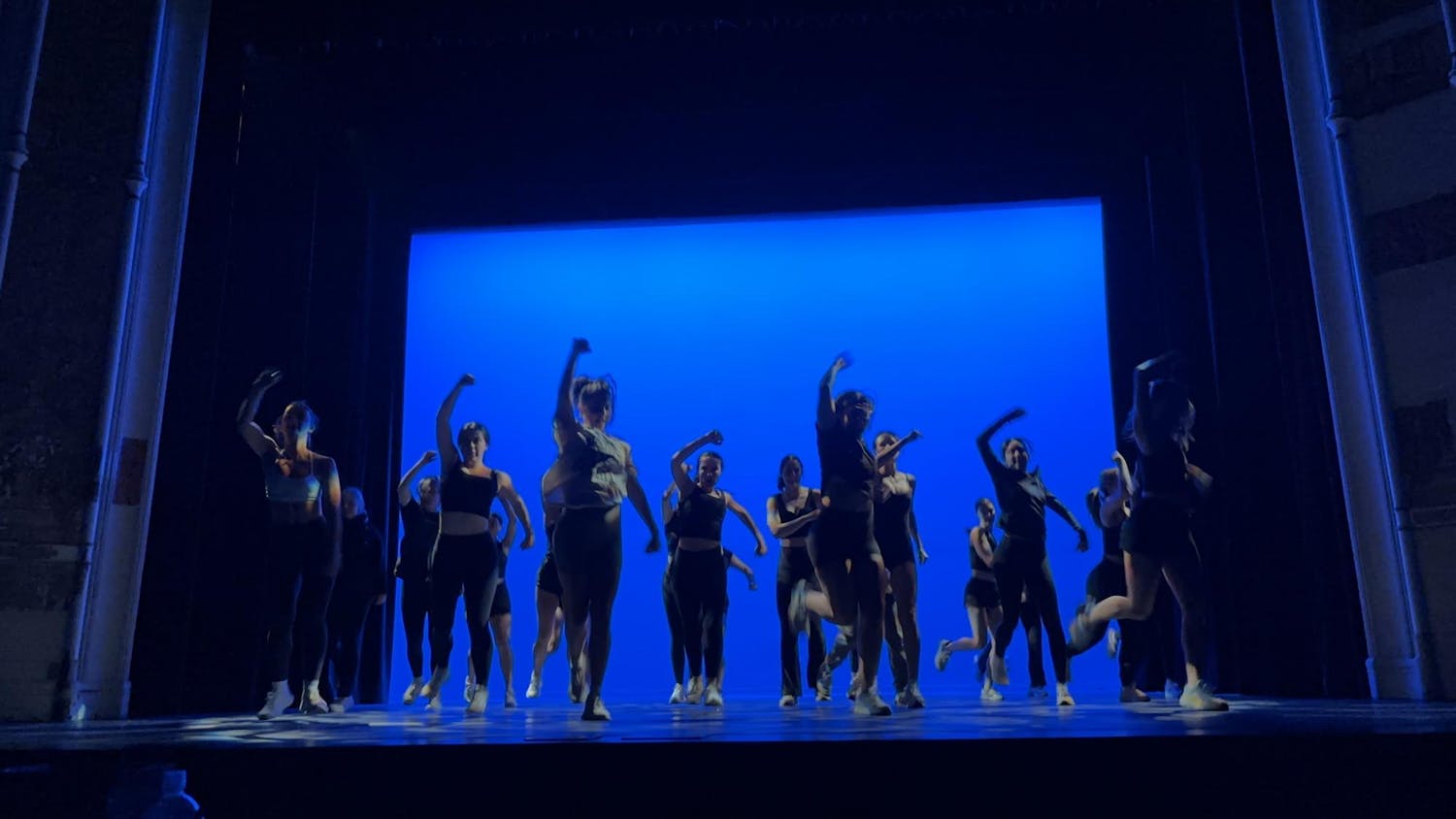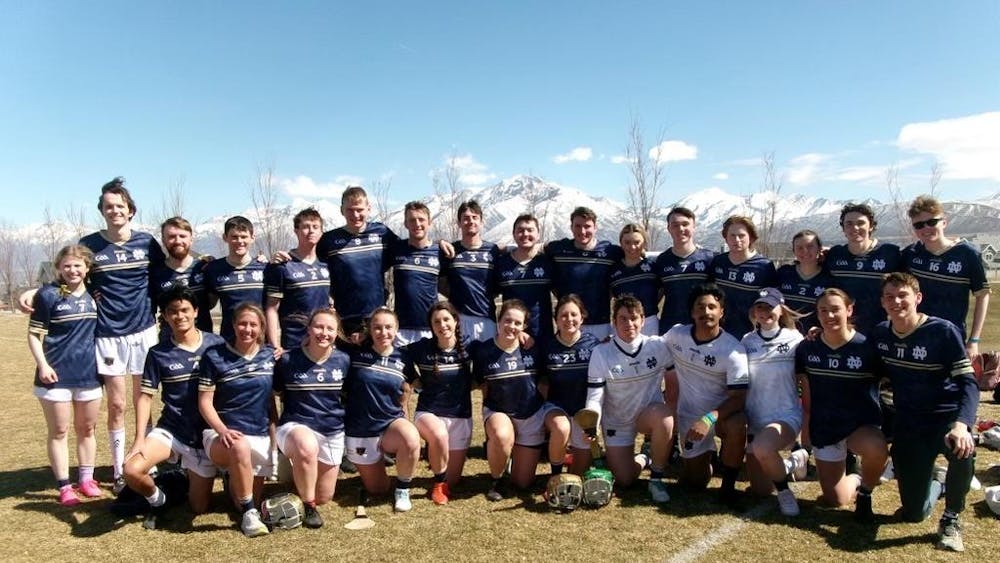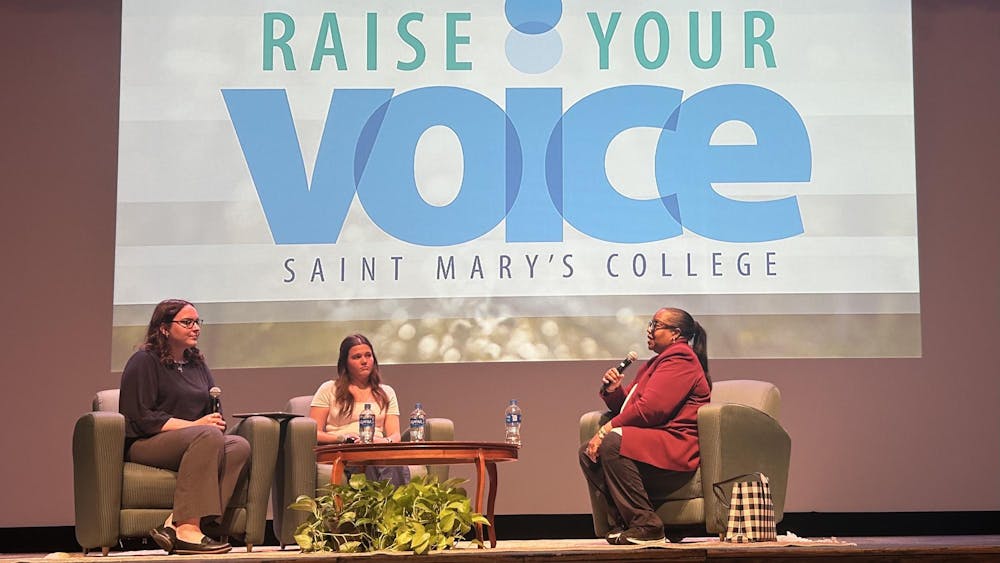Participants at Saint Mary’s Hunger Banquet on Tuesday quickly discovered they were not eating a typical dinner.
The event separated students, faculty and staff into one of three different groups representing social classes: upper, middle and lower. The lower economic classes had the largest number of participants, while the upper class was small. Participants sat and ate with their assigned class, and their class determined how much and what they ate.
The upper class participants received a full, three-course meal served to them by staff while sitting at elaborately decorated tables. Meanwhile, middle class participants ate rice and lentils, and lower class participants only ate rice. This dinner simulated the differences between how and what different classes eat.
Senior Olivia Burnett said the experience was eye-opening.
“Most people eat to survive, whereas in our culture, we eat for pleasure,” she said.
The Student Diversity Board (SDB) hosted the dinner with help from the Office of Civic and Social Engagement.
SDB’s goal was to show how diverse America is in terms of economic status and that not everyone has the same resources students are accustomed to, senior and SDB President Victoria Ernsberger said.
“The first year I went [to the banquet], it was truly an eye-opening experience to me, and the statistics provided during the event were heart-wrenching,” she said. “I think that it is important to understand that we are so privileged at Saint Mary’s. It is important to help those who are less fortunate.”
Throughout the meal, participants heard testimonies about poverty and watched a video about food security in the United States. Ernsberger said 805 million people worldwide suffer from chronic hunger and about half of the world’s population, or 3 billion people, live in poverty.
Burnett said the event highlighted the privilege of food security.
“We don’t always recognize or appreciate that there are others out there who do not get the same privilege,” she said.
The event is largely shaped by the participants and their personal experiences with food security, Ernsberger said.
“Each year is different due to the individuals that partake in the event and their own individual stories and feelings that they are willing to share,” she said before the banquet. “We encourage participants to share their feelings regarding their placement during the banquet.”
This year’s Hunger Banquet is part of a series of events geared towards food justice. Other events include a canned food drive, a campus ministry cooking class and a panel discussing food access. Ernsberger said she believes all of these events can help College community members be better informed about poverty and access.
“I hope that students, faculty, and staff are able to walk away from the event feeling called to act and help with this injustice,” Ernsberger said.













